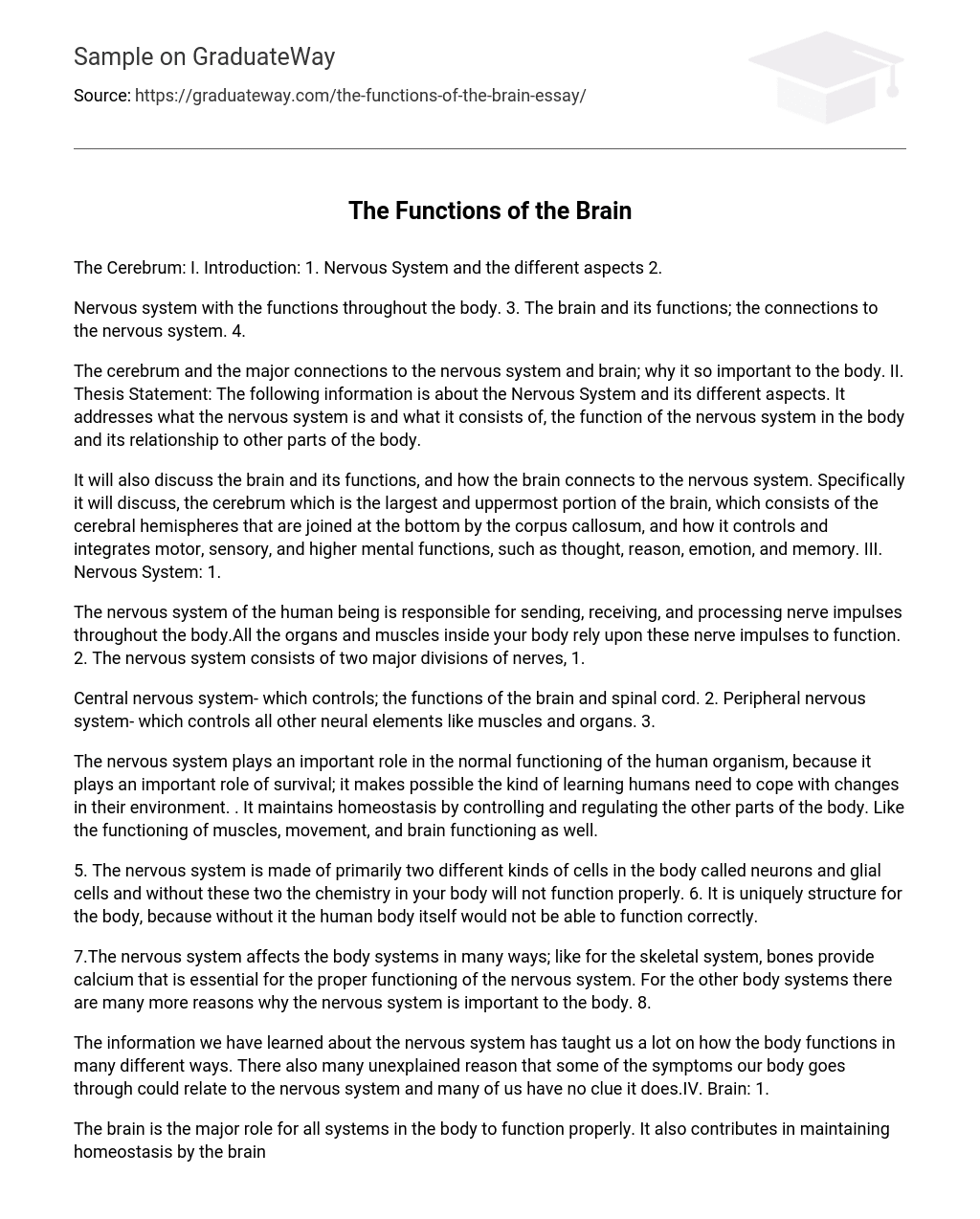The following information is about the Nervous System and its different aspects. It addresses what the nervous system is and what it consists of, the function of the nervous system in the body and its relationship to other parts of the body. It will also discuss the brain and its functions, and how the brain connects to the nervous system. Specifically it will discuss, the cerebrum which is the largest and uppermost portion of the brain, which consists of the cerebral hemispheres that are joined at the bottom by the corpus callosum, and how it controls and integrates motor, sensory, and higher mental functions, such as thought, reason, emotion, and memory.
The nervous system of the human being is responsible for sending, receiving, and processing nerve impulses throughout the body.All the organs and muscles inside your body rely upon these nerve impulses to function. The nervous system consists of two major divisions of nerves,
Central nervous system- which controls; the functions of the brain and spinal cord. Peripheral nervous system- which controls all other neural elements like muscles and organs. The nervous system plays an important role in the normal functioning of the human organism, because it plays an important role of survival; it makes possible the kind of learning humans need to cope with changes in their environment.
It maintains homeostasis by controlling and regulating the other parts of the body. Like the functioning of muscles, movement, and brain functioning as well. The nervous system is made of primarily two different kinds of cells in the body called neurons and glial cells and without these two the chemistry in your body will not function properly. It is uniquely structure for the body, because without it the human body itself would not be able to function correctly.
The nervous system affects the body systems in many ways; like for the skeletal system, bones provide calcium that is essential for the proper functioning of the nervous system. For the other body systems there are many more reasons why the nervous system is important to the body.
The information we have learned about the nervous system has taught us a lot on how the body functions in many different ways. There also many unexplained reason that some of the symptoms our body goes through could relate to the nervous system and many of us have no clue it does.
The brain is the major role for all systems in the body to function properly. It also contributes in maintaining homeostasis by the brain stem, it plays a role in homeostasis, but it is the hypothalamus that gives instructions to the brain stem. So the gland of homeostasis is the hypothalamus and the organ of homeostasis is the kidney. One of the contributing factors of the brain stem is that the medulla oblongata is both the cardiac and respiratory center.
The chemistry of the brain is important to the way it functions, because it responds to the signals that the nervous system provides. If the nervous system does not work properly then the chemistry between the brain and the nerves will malfunction. In the central nervous system, it’s made up of the brain, spinal cord, and the peripheral nervous system is made of nerves. Together they all help control you daily activities like breathing, blinking, and remembering important fact for a test. Your entire body relies on your brain to be able o function without it you would not be living. It also relies on others parts of the body to be able function.
In today’s information provided to us, it shows that we know that the brain cannot function properly without the nervous system, the respiratory system, and the rest of the systems because the brain relies on all of them to be able to have the human body to function properly. What we do not know is how the brain functions with the unknown medical conditions out there.





